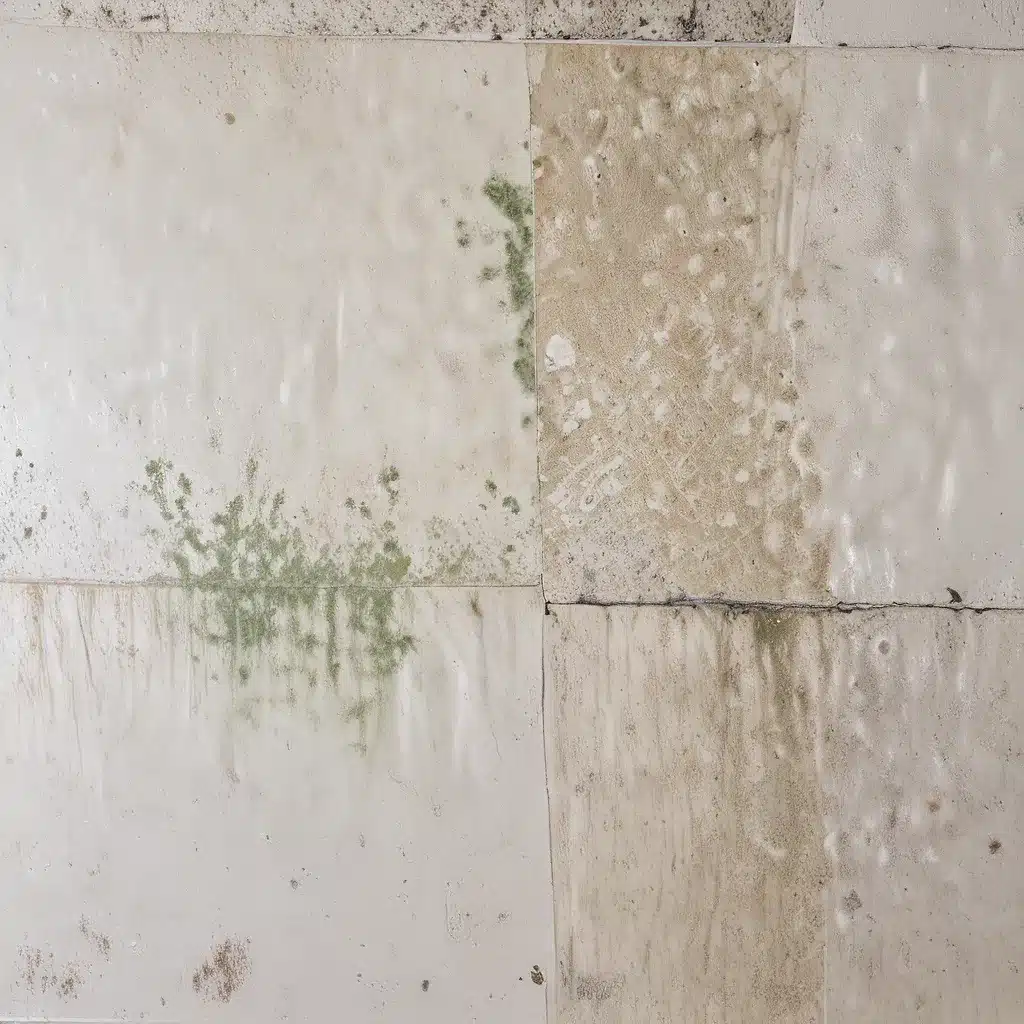As a homeowner, the mere thought of dealing with mold can send a shiver down my spine. It’s a silent invader, a relentless foe that thrives in the damp nooks and crannies of our living spaces, quietly compromising our health and the integrity of our homes. But fear not, my friends – today, I’m going to share with you a comprehensive guide on mold elimination, equipping you with the knowledge and strategies to reclaim your sanctuary from this pesky fungal growth.
Understanding the Mold Menace
Let’s start by getting to know our enemy a little better. Mold is a type of fungus that flourishes in moisture-rich environments. It can take up residence on various surfaces, including walls, ceilings, carpets, and even within our ventilation systems. Some common indoor mold species you might encounter include Aspergillus, Penicillium, Cladosporium, and the notorious Stachybotrys chartarum, also known as “black mold.”
Now, you might be wondering, “How does this mold get in here in the first place?” Well, the truth is, mold spores are virtually everywhere, floating through the air and hiding in the nooks and crannies of our homes. They’re just waiting for the right conditions – primarily, moisture and humidity – to take root and start spreading.
Exposure to indoor mold can have a range of adverse health effects, particularly for individuals with allergies, asthma, or weakened immune systems. These effects may include sneezing, runny nose, red eyes, skin rashes, and in some cases, even more severe reactions. And let’s not forget the potential damage mold can do to the structure of your home, as it slowly eats away at the materials it colonizes.
Preventing the Mold Invasion
The best way to deal with mold is to prevent it from taking hold in the first place. Here are some proactive strategies you can implement to keep those pesky fungi at bay:
Control Moisture and Humidity
This is the most crucial step in mold prevention. Regularly monitor and maintain optimal humidity levels (between 30-50%) in your home. Use dehumidifiers, exhaust fans, and proper ventilation to keep moisture under control, especially in high-risk areas like bathrooms and kitchens.
Address Water Leaks and Spills Promptly
Mold thrives on moisture, so any water intrusion, whether it’s a leaky pipe, a spill, or a roof leak, needs to be addressed immediately. Enlist the help of professional cleaning services if necessary to thoroughly dry out the affected areas and prevent mold growth.
Improve Air Circulation
Stagnant air can create pockets of high humidity, making it easier for mold to take hold. Encourage airflow by opening windows, using fans, and ensuring your HVAC system is functioning correctly.
Choose Mold-Resistant Materials
When renovating or building, opt for mold-resistant building materials, such as moisture-resistant drywall, mold-inhibiting paints, and mildew-resistant caulk and grout.
Keep Your Home Clean and Dry
Regular cleaning and maintenance can go a long way in preventing mold. Wipe down surfaces, vacuum carpets and upholstery, and address any signs of moisture or dampness promptly.
Tackling Existing Mold Growth
Despite our best efforts, sometimes mold finds a way to creep into our homes. If you do discover mold growth, it’s important to address it quickly and effectively. Here’s how to approach the situation:
Assess the Extent of the Problem
Carefully examine the affected area and determine the size of the mold infestation. If the moldy area is less than 10 square feet, you may be able to handle the cleanup yourself. Anything larger, or in areas with persistent water issues, is best left to the professionals.
Contain the Spread
To prevent the mold spores from spreading throughout your home, isolate the affected area by sealing off doors and windows. Use negative air pressure and HEPA filtration to control the airflow and capture any airborne spores.
Eliminate the Moisture Source
Before you can tackle the mold itself, you need to address the underlying cause – the moisture that allowed the mold to grow in the first place. Fix any leaks, improve ventilation, and dehumidify the area to eliminate the conditions that enabled the mold to thrive.
Safely Remove the Mold
Depending on the size and location of the mold growth, you may need to employ a variety of removal techniques, ranging from scrubbing and cleaning to more intensive mold remediation methods. Always take proper safety precautions, such as wearing protective gear and ensuring adequate ventilation.
Prevent Recurrence
Once the mold has been eliminated, it’s crucial to maintain vigilance and continue monitoring for any signs of future growth. Address any lingering moisture issues, and consider implementing the preventive measures we discussed earlier to keep those pesky fungi at bay.
Embracing a Mold-Free Future
Dealing with mold can be a daunting task, but with the right knowledge and a proactive approach, you can reclaim your home and enjoy a healthier, mold-free living environment. Remember, prevention is key, so stay vigilant, address moisture issues promptly, and never hesitate to seek the help of professional cleaning services like Adam Cleaning if the mold problem seems too overwhelming to handle on your own.
By taking the necessary steps to eliminate mold and implement effective prevention strategies, you’re not just protecting your home – you’re safeguarding your family’s well-being and creating a sanctuary that’s truly free from the scourge of fungal growth. So, let’s roll up our sleeves, put on our mold-fighting hats, and embark on a journey to a mold-free future. Your healthier, happier home awaits!







